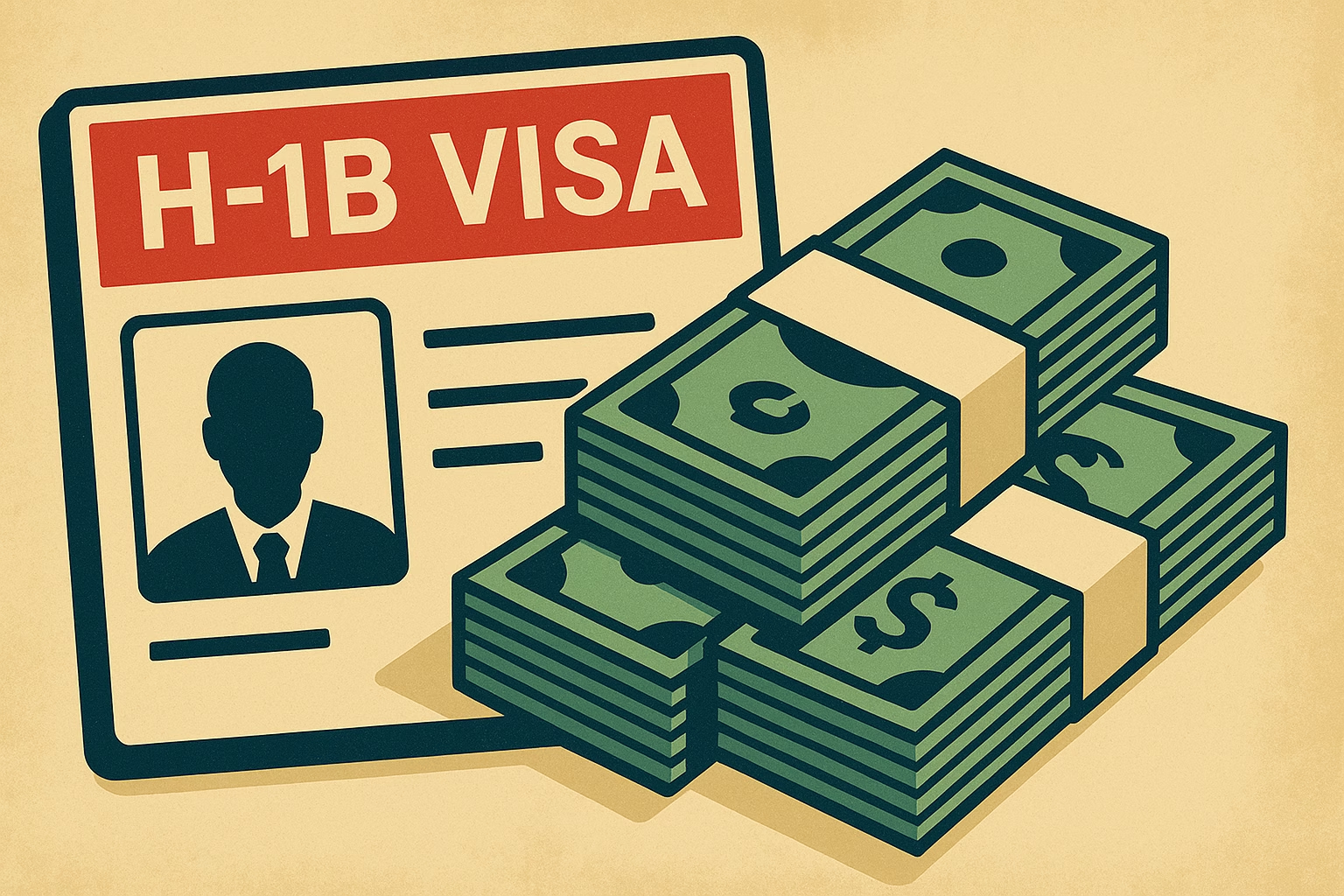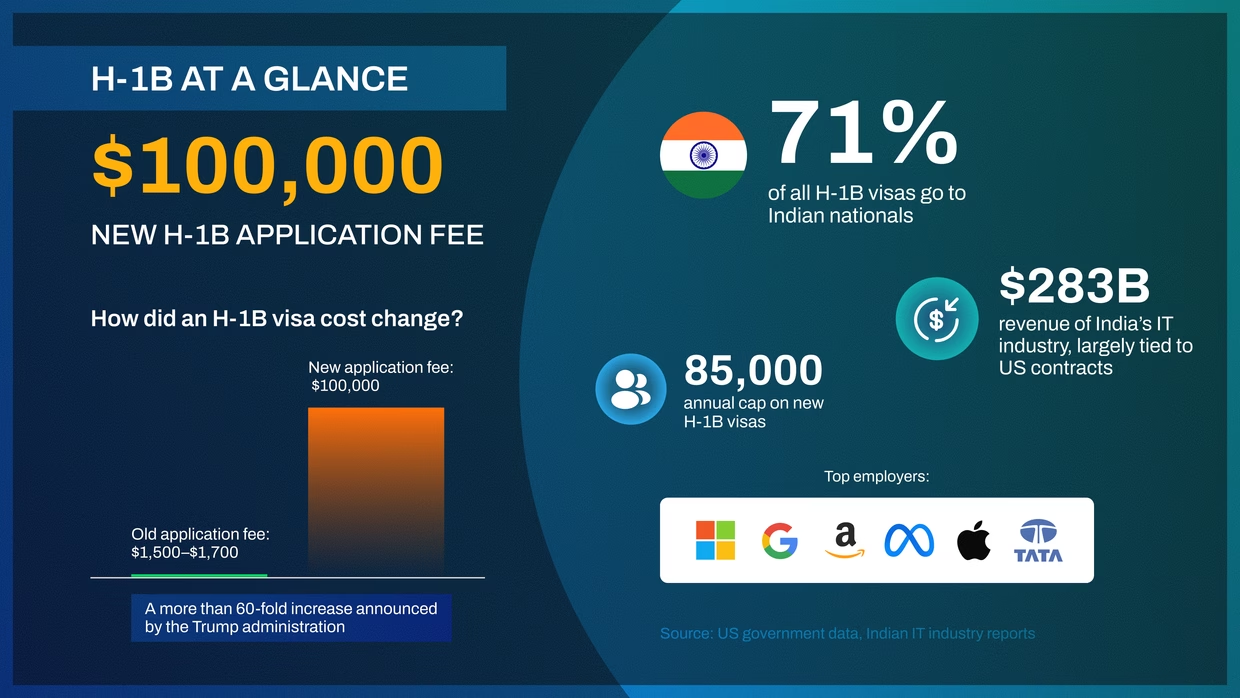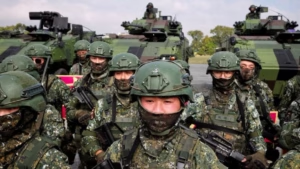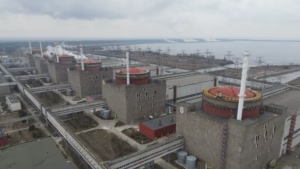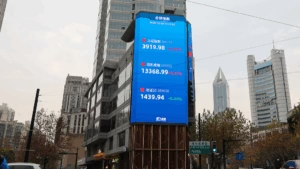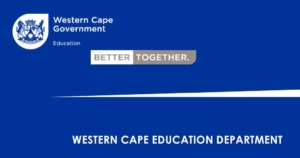The White House confirmed that a new fee of 100,000 US dollars will be applied to H-1B visa petitions from Sunday. Officials said the charge will be levied per petition rather than on a recurring basis and will not affect existing holders of valid visas who re-enter the United States.
“This is NOT an annual fee. It’s a one-time fee that applies only to the petition,”
White House spokesperson Karoline Leavitt stated on the social platform X.
The announcement followed a declaration by President Donald Trump’s administration on Friday, in which officials initially described the measure as an annual charge of 100,000 US dollars per H-1B worker. The confusion unsettled technology companies and raised questions about whether the policy was aimed at discouraging foreign talent or reshaping the visa process.
According to internal communications seen by Reuters, firms including Microsoft, JPMorgan, and Amazon instructed their employees holding H-1B visas to remain in the country until further clarity emerges. Politico reported that both employers and immigration lawyers had advised visa holders abroad to return to the United States before the new rule takes effect at midnight on Sunday.
India, whose nationals accounted for more than seventy percent of H-1B approvals last year, voiced concern over the human impact. The government cautioned that families could be torn apart if the measure was implemented without adjustments.
“This measure is likely to have humanitarian consequences by way of the disruption caused for families. Government hopes that these disruptions can be addressed suitably by the U.S. authorities,”
India’s Foreign Ministry spokesperson Randhir Jaiswal said.
The National Association of Software and Service Companies, which represents India’s 283 billion US dollar information technology and business process outsourcing industry, echoed these concerns. The group argued that the sudden policy shift would not only affect Indian nationals working in the United States but also disrupt ongoing projects for global technology firms that rely on smooth deployment of staff.
South Korea’s foreign ministry said it is conducting its own assessment of the potential impact on Korean companies and workers who rely on the H-1B route.
The development comes as relations between Washington and New Delhi remain fragile. Last month, President Trump announced tariff increases on a range of Indian imports, in some cases doubling duties to fifty percent. Observers now warn that the visa measure could deepen tensions and complicate trade and diplomatic dialogue.
Since assuming office in January, President Trump has pursued a broad immigration crackdown. He has pledged to restrict both legal and undocumented migration, with the H-1B overhaul emerging as his most prominent move targeting temporary skilled worker programmes.
The new policy also intersects with the political dynamic between Trump and the technology sector. Although many companies contributed significantly to his campaign, the industry is among the most dependent on highly skilled workers from abroad, particularly from India and China.
Commerce Secretary Howard Lutnick argued that the policy is intended to prioritise American graduates.
“If you’re going to train somebody, you’re going to train one of the recent graduates from one of the great universities across our land,”
he said.
The full consequences of the fee remain uncertain. Companies are still seeking clarification about whether future extensions or amendments to existing H-1B petitions would incur the new charge. For workers and their families, the primary concern is whether international travel might be disrupted. For governments such as India and South Korea, the worry lies in whether their global technology services and export-driven firms will face additional costs and reduced mobility of skilled staff.
While the White House stresses that the fee is a one-time requirement tied to petitions, critics argue the broader policy reflects an effort to deter reliance on foreign labour. Supporters counter that it encourages American companies to hire and train domestically.
The coming weeks are expected to determine whether this fee becomes another contentious marker in the ongoing struggle between the Trump administration’s immigration policies, the global technology industry, and diplomatic partners abroad.

